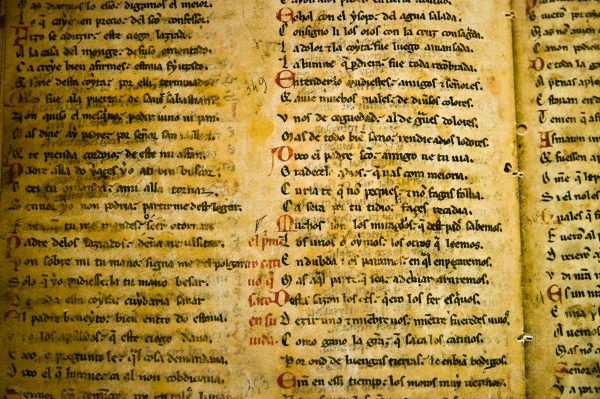Part of an ongoing web serial perhaps inspired by the Screwtape Letters. Unless otherwise noted, “the Ex-CEO” refers to God, “the opposition” to the side of the angels, and so on.
Preface: As detailed in the introduction, the Ekron Initiative files were found in a leather dossier acquired by confidential methods. Among these documents was a scanned copy of a parchment document written in what linguists have confirmed is Elizabethan-era English. The document was considerably older than the other messages in the dossier, but was directly referenced in the third memorandum.
On scholars’ suggestion, this message has been translated into contemporary English for the benefit of contemporary readers. Notes on historical and cultural references have been added.
T.G. and Other Puritan Prudes
Recipient: Primal Fear, European Management Force, c/o the Sluckdrip1 Tower Room No. 667, 8th Circle of Hell.2
From: Malice, VP of European Religious Rhetoric (England Division)
Report Date: [Exact Date Redacted, Circa 1617]
Summary: As your honored self is aware, I took over the Elizabethan England Division of European Religious Rhetoric in the middle of the last quarter-century, ahead of the usual schedule. It was felt at the time that responses to a church vestment debate occurring in the United Kingdom,3 combined with instability left from the self-supreme monarch’s many changes,4 held the potential for breeding new fundamentalism. To this end, I was appointed to replace Vice-Manager Fervor and promote discord wherever possible.
I am pleased to say that under my leadership, discord has been sown most abundantly. We have created strife between religious groups in Europe on every level, leading to various banishments, executions and feuds. I would like to take a space in this report to address a particular aspect of discord I am quite proud of: the Puritans’ views toward creative giftings. We have successfully convinced many Puritans that beauty and enjoyment of any sort are to be discouraged. This has been particularly true in regards to theatrical enjoyments, a form that the Roman faction5 approved of and had integrated into their church activities in various ways.
As the attached sample, published by an individual who calls himself “T.G.” shows,6 the results have been most profitable. We have convinced our targets that plays, far from being an engaging artistic means to convey truth, are in every way dangerous and obscene. T.G. and his colleagues maintain that:
- Any art form invented by pagans or originating in their “pagan rituals” was unholy and not worthy of a Christian’s participation.
- Plays are usually tales of “murder and mischief,” which no Christian should approve of.
- Seeing a sin occur within a play was paramount to taking part in that sin.
- Using money to buy theatre tickets constituted waste, using God’s money on frivolities rather than important work.
- Any activity that has been rejected by church officials in the past is not to be taken up.
I must reiterate that this is only a sampling of the response we have achieved in the last quarter-century. I am firmly convinced that with continued support, a good supply line of staff from the Infernal Rhetoric Division, and the continued usage of our training programs, we can surpass these results within two quarters, if not sooner.
This report by:
Malice
Vice-Manager
European Religious Rhetoric (England Division)
Editor’s Notes:
1. Evidently hell has a sense of humor. Sluckdrip is a fictitious demon in a 1943 letter that Dorothy L. Sayers wrote to C.S. Lewis, spoofing his book The Screwtape Letters.
2. As mentioned in the notes for Memo 1, the eight circle in Dante’s Inferno is reserved for the sin of fraud.
3. The vestment controversy was a debate within the Church of England about clergymen being required to wear vestments. The controversy beginning in 1550 under Edward VI, revived in 1562 during the reign of Elizabeth I. Church historians regard the Puritan objections to the requirement during Elizabeth I’s reign as one of the first examples of Puritan separatist activity.
4. The “self-supreme monarch” seems to be a reference to Henry VIII, who separated from the Roman Catholic Church and became Supreme Head of the Church of England under the Acts of Supremacy in 1534.
5. Apparently a reference to the Roman Catholic Church.
6. Phil Cooke mentions this 1616 treatise and its core points in a 2017 online article titled “The Puritan View of Entertainment” (www.philcooke.com/puritans/). It is also cited in Steve Turner’s summary of Puritanism in Imagine.
Cover Photo by Mark Rasmuson on Unsplash

